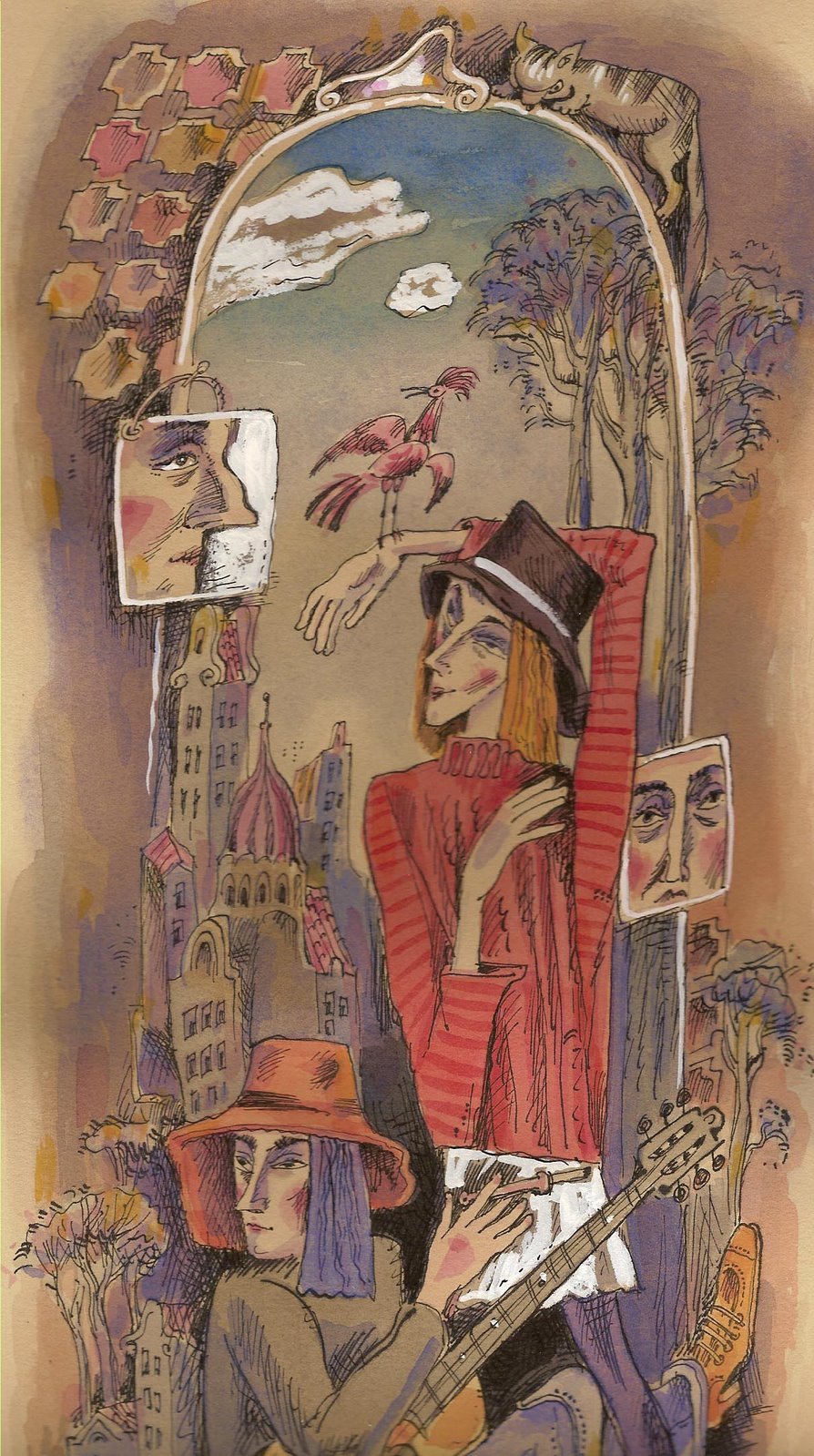Anne Tyler's Tips on Writing Strong (yet Flawed) Characters
by Jessica Strawser
With a body of work spanning five decades, a Pulitzer Prize and membership in the Academy of Arts and Letters, Anne Tyler is a testament to the best kind of longevity—and the purity of the written word.
Anne Tyler belongs to a disappearing generation of writers, those who came into their own in an era when it was more than enough to—well, to simply write. Intensely protective of her craft, she hasn’t given an in-person interview or participated in a book tour since 1977. In an age where writers are expected to lead double lives as self-promoters to enjoy any semblance of commercial success, Tyler carries on just as she always has, remaining steadfast in her singular devotion to her writing process. And she can get away with it, too, because she’s Anne Tyler—and she’s just that indisputably good.
If Tyler’s writing career sounds like a luxury, a lofty dream come to life—penning a well-received book every few years in the quiet of her home in Baltimore, eschewing the media in favor of the companionship of her characters—it’s one she’s earned. Tyler published her first book, If Morning Ever Comes, in 1964, prompting a New York Times reviewer to write, “This is an exceedingly good novel, so mature, so gently wise and so brightly amusing that, if it weren’t printed right there on the jacket, few readers would suspect that Mrs. Tyler was only 22. Some industrious novelists never learn how to write good fiction. Others seem to be born knowing how. Mrs. Tyler is one of these.” Somewhat amusingly, the exceptionally modest Tyler did not agree, and has since said she’d like to disown her first four novels—in her opinion, she began hitting her stride with her fifth book, Celestial Navigation, in 1974.
She released her favorite of her works, Dinner at the Homesick Restaurant, in 1982, and cemented her status as a household name in 1985 with the publication of her 10th book, The Accidental Tourist, which she is still perhaps best known for today. The story—centered around a neurotic writer who makes a living penning guidebooks for travelers who, like himself, want to avoid experiencing anything unfamiliar—affirmed Tyler’s reputation as a clever, charming storyteller. Her follow-up, Breathing Lessons, a simultaneously hilarious and heartbreaking novel that takes place in the span of a single day, won the Pulitzer Prize in 1989. But having learned that talking about her writing was prohibitive to actually doing it, Tyler would not be coaxed back into the public eye. She found she could succeed best as a wife, mother and writer without it.
Her books are about families, and the complications therein—marital discourse, sibling rivalry, resentment and, underneath it all, love. Tyler’s eccentric and endearing characters are so intensely real, so thoroughly developed, they come to life on the page—both for her as she writes and for the reader, who suddenly can see a bit of his own mother, father, brother or even self in their blurted-out words, their unspoken impulses, their mistakes and, with any luck, their moments of triumph.
In anticipation of the release of her 18th novel, Noah’s Compass, which hits shelves in January, WD was granted a rare interview with Tyler, now 67, via e-mail—a format to which in recent years she has sporadically consented, deeming it less disruptive. She discusses her latest work, lessons learned through decades of writing, and her literary legacy.
IN AN INTERVIEW AFTER THE 2006 RELEASE OF YOUR LAST NOVEL, DIGGING TO AMERICA, YOU SAID, “I’D LIKE TO WRITE ABOUT A MAN WHO FEELS HE HAS NOTHING MORE TO EXPECT FROM HIS LIFE; BUT IT’S ANYBODY’S GUESS WHAT THE REAL SUBJECT WILL TURN OUT TO BE IN THE END.” IS NOAH’S COMPASS THAT BOOK? HOW DID THE STORY EVOLVE?
Surprisingly, Noah’s Compass did turn out to be exactly that book. That doesn’t always happen. Even though I never base my novels on real events, I do think they often reflect my current stage of life. Noah’s Compass began to take shape when I was in my mid-60s. Like [protagonist] Liam, I have begun to wonder how people live after they have passed all of the major milestones except for dying.
SOME OF YOUR MOST WELL-KNOWN PROTAGONISTS ARE MALE, AS IN NOAH’S COMPASS. HOW DO YOU GO ABOUT WRITING FROM THE PERSPECTIVE OF THE OPPOSITE SEX?
I had a really good father, and two really good grandfathers, and three really good brothers—far more men in my life than women, in fact. Probably that’s why I don’t think of male characters as being all that foreign to me. The biggest stretch I’ve had to make is reminding myself that men need to shave in the morning.
YOUR STORIES OFTEN DEAL WITH MATTERS OF FAMILY AND COMPLICATED RELATIONSHIPS, AND YET EACH ONE SEEMS FRESH. HOW DO YOU ENSURE EACH BOOK CREATES A UNIQUE WORLD FOR THE READER TO IMMERSE HERSELF INTO?
Well, thank you, but I always worry that I’m not creating a unique world. With every novel I finish, I think, “Oh, darn, I’ve written the same book all over again.”
HOW MUCH DO YOU CONSIDER YOUR AUDIENCE WHEN YOU WRITE? AS YOU RELEASE A NEW BOOK, DO YOU IMAGINE YOUR READERS TO BE PRIMARILY NEW ONES, OR TO BE “CONSTANT READERS,” AS STEPHEN KING CALLS THEM, WHO HAVE GROWN WITH YOU? OR DO YOU NOT IMAGINE THEM AT ALL?
I’ve learned that it is best not to think about readers while I’m writing. I just try to sink into the world I’m describing. But at the very end, of course, I have to think about readers. I read my final draft pretending I’m someone else, just to make sure that what I’ve written makes sense from outside.
At that point, I seem to picture my readers as brand-new to me. They have the neuter, faceless quality of people in dreams. It comes as a shock later when a real-life reader writes to me and turns out to be a specific human being.
YOUR CHARACTERS SEEM SO REAL, IN PART, BECAUSE THEY’RE SO FLAWED. YOU’VE ALSO SAID YOUR CHARACTERS SURPRISE YOU ALL THE TIME. AS YOU WRITE, HOW DO YOU KEEP EVEN THE MOST FLAWED CHARACTERS ENDEARED TO THE READER, RATHER THAN INADVERTENTLY PORTRAYING THEM AS UNLIKABLE?
Sometimes I don’t manage to keep them endearing, and if that happens, I ditch them. It takes me two or three years to write a novel. I certainly don’t want to spend all that time living with someone unlikable.
YOUR BOOKS CAN BE LAUGH-OUT-LOUD FUNNY. IS IT YOUR OWN SENSE OF HUMOR WE’RE READING, OR DOES IT COME FROM SOMEPLACE ELSE ENTIRELY?
I’m not in the least funny personally. The funny things emerge during that stage that writers always talk about, where the characters take over the story, and more than once something a character has said has made me laugh out loud, because it’s certainly nothing I’d have thought of myself.
AT WHAT POINT IN THE PROCESS DO YOUR TITLES COME TO YOU? HOW MUCH IMPORTANCE DO YOU PLACE ON THEM?
I think titles are hugely important, but they don’t always come easily. Several times my editor, Judith Jones, has shot a title down and then I’ve spent ages finding a new one. Only one title—Celestial Navigation—came to me before I’d even written a book for it. At the time I was simply in love with the phrase; I even had a cat named Celestial Navigation.
IN WHAT WAYS DO THE LONGEVITY AND EXPERIENCE OF YOUR CAREER IMPACT THE WRITING YOU’RE DOING TODAY?
If anything, the impact is a negative one. I worry that I’ve done this so many times, pretty soon I’ll start “phoning it in,” as they say. (I love that phrase.) If that happens, I hope I will have enough sense to quit.
YOU SEEM TO VIEW WRITING AS SACRED, AND TO BE PROTECTIVE OF YOUR PROCESS. CAN YOU EXPLAIN WHY YOU FEEL IT’S SO ESSENTIAL FOR IT TO BE SO?
I’ve noticed that whenever I become conscious of the process, the process grinds to a halt. So I try not to talk about it, think about it, write about it—I just do it.
AFTER YOU’VE WON A MAJOR AWARD FOR YOUR WRITING—HAVING DESCRIBED YOUR REACTION TO WINNING THE PULITZER AS “FLABBERGASTED”—HOW DOES THAT AFFECT THE EXPERIENCE OF WRITING FUTURE BOOKS? DO YOU EVER FEEL PRESSURED FOR EACH BOOK TO MEASURE UP TO A CERTAIN STANDARD OR EXPECTATION?
Part and parcel of not thinking about the reader is not thinking about a book’s reception in general—the critical opinions or the sales figures. So I am spared that sense of pressure you’re talking about, although I admit that it’s a cowardly approach.
THE PUBLISHING INDUSTRY HAS CHANGED DRAMA-TICALLY SINCE YOU RELEASED YOUR FIRST BOOK. WHAT IN YOUR OPINION IS THE MOST POSITIVE CHANGE YOU’VE OBSERVED OR EXPERIENCED? THE MOST UNFORTUNATE?
I honestly have very little knowledge of the publishing industry. I have been extraordinarily fortunate
in having only one publisher in my career, and only one editor, and we have jogged along together without much incident of any sort. I believe I have been in the offices of Alfred A. Knopf only twice in my life.
THE EXPECTATIONS ARE INCREASING THAT YOUNG WRITERS TODAY DO SO MANY THINGS IN ADDITION TO WRITING—THEY ARE CALLED UPON TO PROMOTE THEMSELVES AND THEIR WORK, TO INTERACT WITH THEIR READERS ONLINE, AND THE LIKE. HOW DO YOU RECOMMEND THEY STAY TRUE TO THE CRAFT OF WRITING WHILE PURSUING SUCCESS IN PUBLISHING?
I think it must be very hard. Probably they’re not allowed to say “No,” as writers could in the past. And I’m always sad when new young authors write letters requesting blurbs. If blurbs have to exist (and I don’t believe they do), then it doesn’t seem to me that the writers themselves should be forced to solicit them.
YOU’RE ONE OF ONLY 250 MEMBERS OF THE AMERICAN ACADEMY OF ARTS AND LETTERS. WHAT’S IT LIKE TO BE A PART OF IT?
It is, without a doubt, the single honor I am proudest of.
YOU’VE SAID THAT WHAT YOU HAVE TO SAY, YOU’VE ALREADY SAID THROUGH YOUR STORIES. WHEN OTHERS LOOK BACK ON YOUR BODY OF WORK, WHAT DO YOU HOPE THEY HEAR MOST CLEARLY?
It’s not so much what they hear as what they remember experiencing that I have hopes for. I would love it if readers said, “Oh, yes, I was once an accidental tourist,” or, “I once owned the Homesick Restaurant,” and then recalled that in fact, that hadn’t really happened; they had just intensely imagined its happening.
The whole purpose of my books is to sink into other lives, and I would love it if the readers sank along with me.
THE FIRST NOVEL YOU SUBMITTED DID NOT SELL, AND YOU’VE BEEN QUOTED AS SAYING YOU’D LIKE TO DISOWN YOUR FIRST FOUR PUBLISHED NOVELS. TODAY, ON BOOK NO. 18, HOW DO YOU FEEL YOU’VE GROWN AS A WRITER?
More often now, when I finish writing a book, I feel that it comes close to what I envisioned for it at the outset. It’s not exactly what I envisioned, but it comes closer than my earlier books did. I’m very happy about that.
WHAT DO YOU PLAN TO WRITE NEXT? COULD YOU IMAGINE A DAY WHEN YOU MIGHT RETIRE FROM THE CRAFT?
Asking me that right now is like asking a woman who’s just had a baby when she plans to get pregnant again. I can’t believe I’ll ever write another book. And daily I imagine retiring from the craft. But I’ve been saying that for years.
This article appeared in the July/August issue of Writer's Digest.
Subscribe to:
Post Comments (Atom)









No comments:
Post a Comment